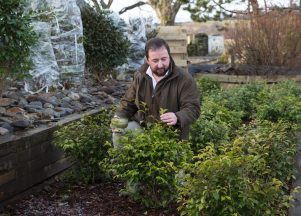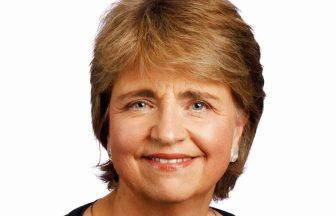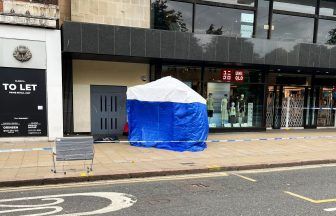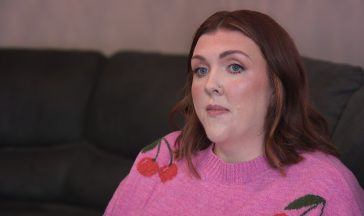An Angus teenager has opened up on her experiences of bullying and urges young people to realise it is ‘never their fault.’
College student Rachel Talbot was just three years old when she first experienced bullying and said it was a situation that followed her throughout her time in school.
The 16-year-old is now sharing her experiences as part of the NSPCC’s anti-bullying week.
“From the moment I walked in the door at nursery, that’s pretty much when it started,” she said.
“I’ve always found it quite difficult to come to terms with. When you’re three, you don’t know who you are. I was always being picked on.
“From primary, it kept getting worse.
A lot of it was verbal, a lot of the time it was social isolation, which is difficult to report. Because you can’t report someone for looking at you funny or that no one is hanging out with you.
“When I started high school I was really anxious, especially in social situations.
“Every time something not so good happened phone my mum in tears and ask her to come and get me.
“I felt incredibly lonely for a lot of years. I had a great support system at home but not everybody has that.”
Last year Childline carried out 8,011 counselling sessions on bullying – 7,077 focused about bullying in person.
Most of the incidents happened in educational settings, with young people concerned about verbal and physical bullying as well as being left out and isolated.

There were also 934 calls to the helpline about online bullying with children experiencing nasty comments, bullying on social networking site and threats and intimidation.
Director of Childline Shaun Friel said: “At Childline our trained counsellors hear from children on a daily basis who are being bullied.
“For some, this is taking place at school in the classroom and playground, whereas for others it’s happening online on social media sites and in group chats.
“No matter how or where a child is being bullied, our trained counsellors know that without the right support it can have significant impact on a child’s mental health and wellbeing and many tell us it has left them feeling sad, overwhelmed and lonely.
“That’s why this Anti-Bullying Week we want to remind all children and young people that if they are being bullied that it is essential that they reach out for help from a safe adult such as a parent, carer, teacher or Childline.”
Rachel is now using her experience to help raise awareness about bullying and the impact it can have on young people.
She’s a member of the NSPCC’s Young People’s Board for Change: “I think it’s important for any young person who has or is being bullied to remember that it is a recovery process, and it can take time to get over it, even when the actual bullying has stopped.
“No one should feel weak if they are still being affected further down the line. Therapy helped me talk through what happened and process it.
“Talking about your feelings with a trusted adult can help things feel more manageable. However, opening up to someone you know can be difficult at times, which is why the NSPCC’s Childline service is so invaluable because it offers someone a place to talk through their experiences and get advice from trained counsellors.
“I don’t want anyone else to feel like I was made to. I would say to anyone who has or is being bullied that it is not your fault.”
A spokesperson for Angus Council said: “Angus Council’s Anti-Bullying Policy for all schools and early learning centres promotes a whole-school approach which places respect and inclusion at the heart of its ethos.
“This helps to prevent bullying by creating an environment which fosters positive relationships, better behaviour and high expectations for all children and young people.
“Schools are proactive in the prevention of bullying through the curriculum, using art, literature and drama, as well as raising awareness through assemblies, anti-bullying weeks, parent/carer evenings etc.
“Children and young people will be involved in the review of our Anti-Bullying Policy which is a priority within our current Angus Education Plan.
“Whilst we cannot comment on individual school situations, no school is immune to issues of bullying and none of our schools are complacent in this regard.
“We advise our young people to report any incidents immediately so that they can be addressed promptly and effectively.
“Restorative and solution-focused approaches, as well as peer mediation, are used to build, maintain, and repair relationships in the school community.
“Angus schools also participated in a joint anti-bullying campaign called ‘ThinkB4UType’ with NSPCC Scotland and Respectme (Scotland’s anti-bullying service) which had a particular focus on online bullying and aimed to raise awareness and educate young people, parents/carers and practitioners about this issue and how to prevent it.”
Help and support about bullying can be found on the NSPCC and Childline websites.
Follow STV News on WhatsApp
Scan the QR code on your mobile device for all the latest news from around the country























